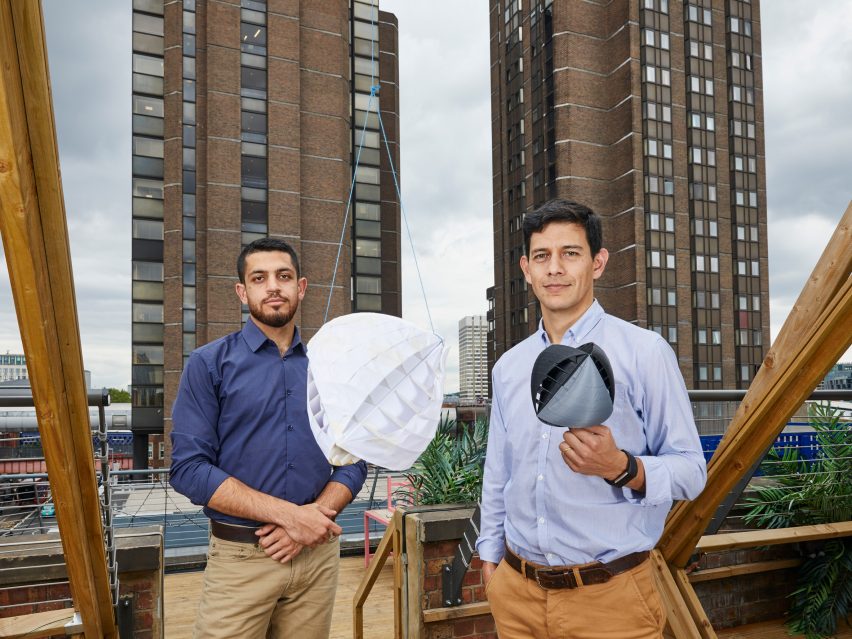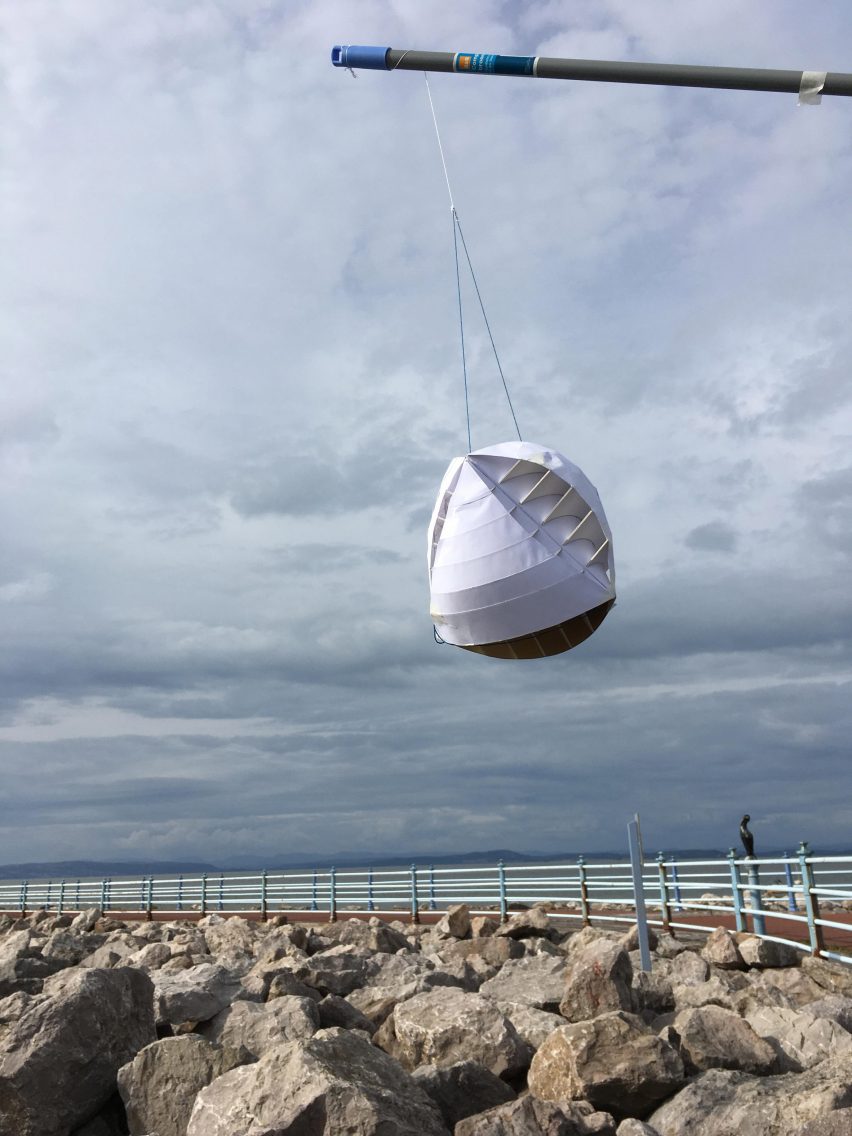Urban wind turbine wins 2018 James Dyson Awards grand prize
The "ingenious" O-Wind Turbine designed by UK students Nicolas Orellana and Yaseen Noorani is the winner of the international James Dyson Awards.
The 2018 grand prize winner is an omnidirectional wind turbine that works in the middle of big cities, where the architecture of tall buildings typically throws wind flow into chaos and makes conventional unidirectional turbines useless.
The James Dyson Awards recognises the best in student design and engineering from around the world, with a final winner emerging following heats in 27 countries. Entries are asked to design something that solves a problem, big or small.
"It's an ingenious concept"
Dyson, who is best known for his eponymous vacuum cleaners as well as blade-less fans and hairdryers, said Lancaster University students Orellana and Noorani had solved a real problem with their invention, which could allow people living in apartments to generate their own electricity.
"Design something that solves a problem is an intentionally broad brief," said Dyson. "It invites talented, young inventors to do more than just identify real problems. It empowers them to use their ingenuity to develop inventive solutions."

"O-Wind Turbine does exactly that," he continued. "It takes the enormous challenge of producing renewable energy and using geometry, it can harness energy in places where we've scarcely been looking – cities. It's an ingenious concept."
Turbine designed to operate in cities
The small, spherical O-Wind turbine is designed to hang off the sides of buildings or balconies, where wind speed is typically high.
Vents sliced into the surface allow wind to flow in from all directions, spinning the sphere on a single axis like a globe and powering a generator that converts the energy into electricity.

Orellana and Noorani's prize is £30,000, as well as an additional £5,000 for their university department.
Orellana said the James Dyson Awards and surrounding attention had given the emerging designers confidence to develop the concept, and that they had hopes of securing an investment deal in the coming months.
Malaria diagnostic advice and wheelchair for airplanes are runners-up
Two runners-up in the competition have also pocketed £5,000 each. Aamer Siddiqui and Ali Asgar from the American University in Sharjah in the United Arab Emirates were recognised for Air Chair. This wheelchair slips over existing aircraft seats, so that wheelchair users do not have to change from one seat to another during their journey.
A team from the Delft Technical University in the Netherlands — Jan Sebastian van Ackeren, Linde de Jonge, Krishna Thiruvengadam Rajagopal, Julieta Bolanos, Francesco De Fazio and Gerianne Boer — were also named international runners up. Their Excelscope 2.0 is a Malaria diagnostic advice that attaches to a smartphone.
Dyson himself picked the winners following local judging in 27 countries that whittled down an international shortlist. Participating countries in this, the 14th year of the awards, included the USA, China, India, Mexico, Russia and the Philippines.
For Dyson, the awards are one prong in his efforts to boost engineering education. The inventor and staunch Brexiteer also opened his own university, the Dyson Institute, in 2017, starting with an intake of 33 undergraduate engineers.